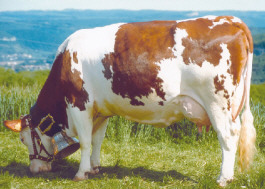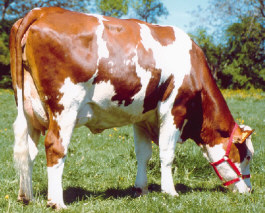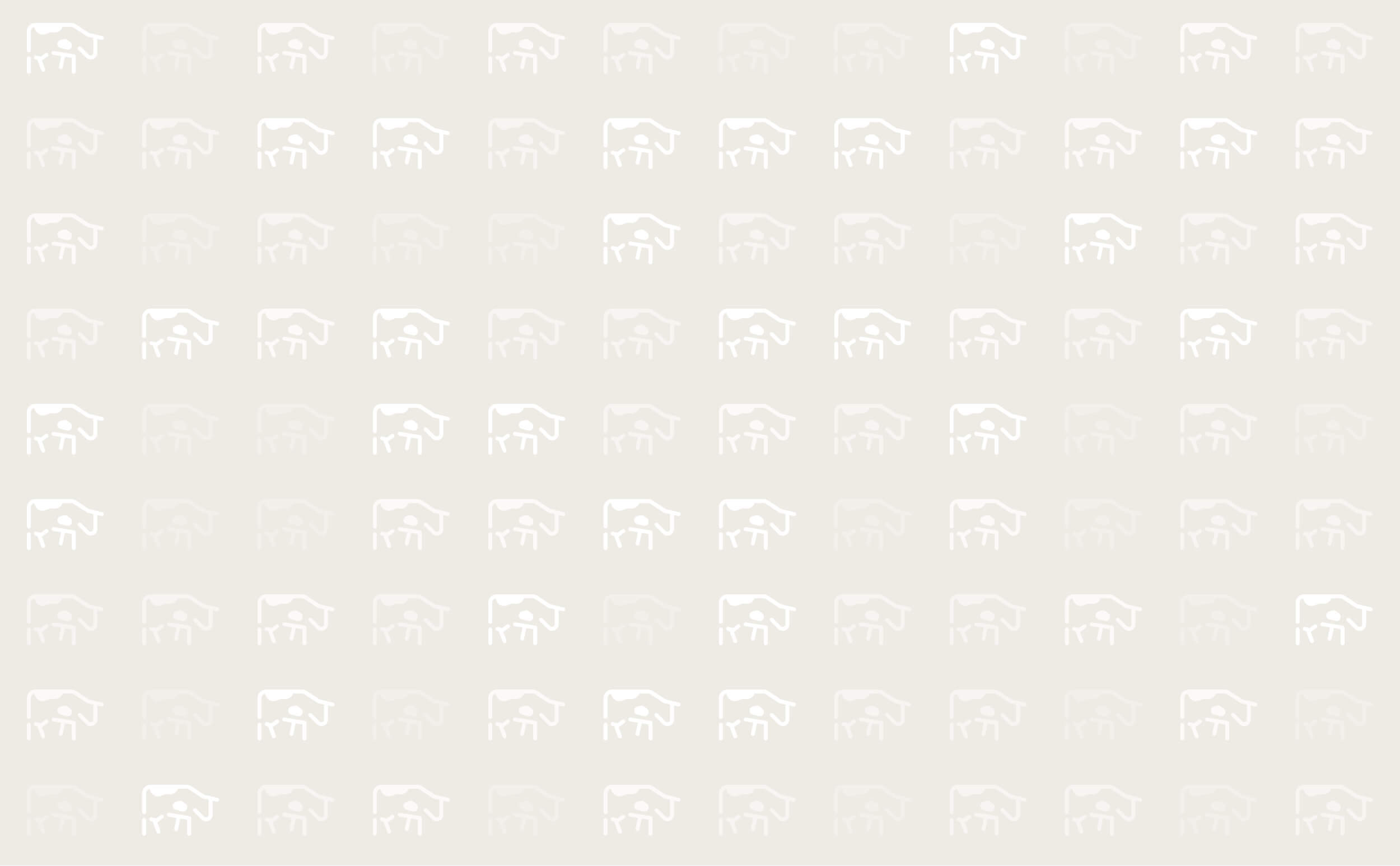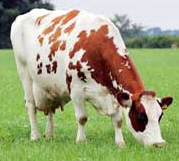



Montbéliarde
History
The Montbéliarde originated in the Haute SaÔne-Doubs region of France, they descend from the Bernoise cattle that were brought by the Mennonites in the 18th Century to France.The breed was originally called the Alsatian breed until around the mid 1800's when it changed to Montbéliarde.
In 1990 the Montbéliarde accounted for 11% of the French national cattle herd, ranking third in the list of dairy breeds in France; that year there were 1,8 million head, 840,000 of which were cows. Two years later it had passed the Normande and ranked second on the list of dairy breeds in France, and in 1994 the breed numbered 280,000 herdbook cows. It is distributed over central East and Southeast France: in the Franche Comté, the Auvergne and Rhône-Alpes (mainly in the departments Saône-et-Loire, Ain and Isère).
Todays modern Montbéliarde is described as a composite of the breeds Tourache, Bernoise through integration since 1960 from Red Holstein.
These cattle are renowned for their milk as traditionally the milk is processed into Emmental and Gruyère cheese.
Characteristics
 Photo courtesy of O.S. Montbéliarde, www.montbeliarde.org |
The breed is renowned for tough feet and strong udders.
The milk yield of 287,734 cows in 1993 averaged 5,693 kg at 3.83% fat and 3.36% protein in 286 days. By 1991 the herdbook cows averaged 6,521 kg milk per lactation. Three month old veal calves and 14-15 month bulls are slaughtered at 130-180 and 470-570 kg. They dress out at 70% and 57%, respectively.
Statistics
Montbéliarde is placed in the first rank for its breeding qualities and functional characteristics:- Resistance to mastitis (very low cell counts)
- Fertility (good success rate in artificial insemination)
- Longevity (24 % with 5 or more lactations)
- Calving ease (25 % of crossbreeding with the Charolais, no calving problems)
- Montbeliarde milk has excellent cheese-making value (for making gruyere) because of its high level of protein content and a high frequency of Kappa Casein B variants.
 Photo courtesy of O.S. Montbéliarde, www.montbeliarde.org |
The Montbeliarde also has undoubted beefing qualities - its rapid growth rate and good conformation mean that its calves and young bulls are highly appreciated; the cull cows too produce good quality carcasses with no excess fat.
In addition, this breed is very hardy and well suited to harsh climates; it is not affected by the heat, and can ingest large quantities of rough forage, which enables it to maintain its performances when used in much hotter regions.
Comparative
Distribution
This breed is highly popular in France and exports of the breed have included South Africa, Germany, Austria, Belgium, Brazil, the Canaries, Chile, China, Columbia, Ivory Coast, Croatia, Spain, the US, Greece, Hungary, Luxembourg, Ireland, Italy, Kuwait, Mexico, New Zealand, Poland, Portugal, Russia, Slovakia. Switzerland, Tunisia, Turkey and many more.References (the above information was cited from the following sites)
www.tiho-hannover.de
www.iol.ie
www.cattlenetwork.net
www.montbeliarde.org


